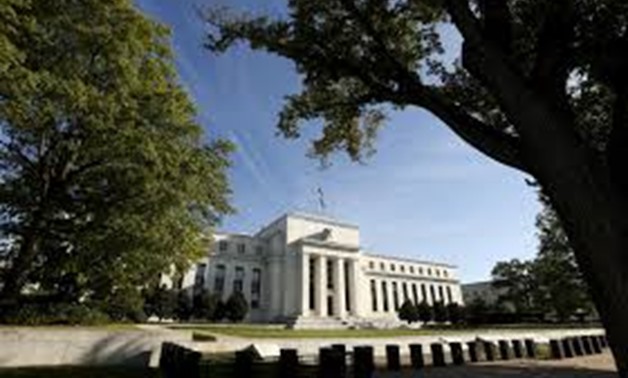
The Federal Reserve headquarters in Washington September 16 2015. REUTERS/Kevin Lamarque/File Photo
NUSA DUA - 10 October 2018: As the Federal Reserve keeps raising interest rates in a strong U.S. economy, transparency and open communications will be key to avoiding market disruptions and misunderstanding in other countries, an influential Fed policymaker said on Wednesday.
The Fed’s nearly three-year-old tightening cycle has in part prompted a global shift in capital away from emerging markets, leading this year to sharp and painful currency plunges in Turkey and Argentina, in particular.
Speaking in Bali, Indonesia, one of the emerging-market economies hit by capital outflows as the U.S. central bank raises rates, New York Fed President John Williams said he supports continued gradual and predictable rate hikes that should better serve global policymakers.
He said this would be “the best solution for emerging markets” to minimize unintended volatility.
“A key lesson about policy making in an interconnected world is that transparency and open lines of communication are critical to minimizing misunderstanding, market disruption, and volatility that can interfere with our common goals of having strong and stable economies,” he told a conference co-hosted by Bank Indonesia (BI) and the New York Fed.
BI Governor Perry Warjiyo, speaking alongside Williams, said the Fed should continue to be “mindful” of the impact of any change in U.S. monetary policy on emerging markets and he advocated a predictable interest rate path.
Indonesia, whose economic growth remains relatively strong and inflation low, has still had to raise interest rates 150 basis points since mid-May in a bid to support its battered rupiah - the second worst performer among emerging Asian currencies.
Warjiyo said less global volatility would help determine his policy response.
EASING THE PRESSURE
“With your assurance of gradual normalization, continued dialogue and clear communication, that also eases the pressure on global spillover and how we need to respond,” he said.
Williams’ speech, at the event on the sidelines of the annual meetings of the International Monetary Fund and the World Bank, largely mirrored a speech he gave late last month.
He reiterated that the Fed in the future will stop giving forward guidance of where rates will go as it enters neutral rate territory.
The world’s largest economy, Williams said, was enjoying a “very strong” labor market with no signs that inflation could rise too much. He brushed off the risk of inflation overshooting the Fed’s expectation due to higher tariffs on some Chinese goods.
Williams said he saw no sign, so far, of a significant impact of the U.S.-China trade war on the U.S. economy and the Fed’s dual mandate of price stabilization and employment, though he cited anecdotal indications of rising trade tensions affecting investment decisions and hiring.
U.S. unemployment has fallen to near a 49-year low of 3.7 percent. In a nod to strong jobs and economic growth, the Fed raised its key policy rate another notch last month, to above 2 percent.
BI’s Warjiyo also called for the IMF and the World Bank to “better synchronize and harmonize international policy” and get policymakers to move away from trade wars and back to supporting multilateralism.

Comments
Leave a Comment